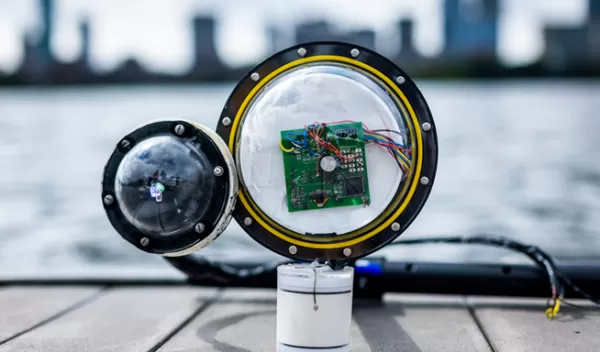
Engineers build a battery-free, wireless underwater camera
Scientists estimate that more than 95% of Earth's oceans have never been observed, which means we have seen less of the planet's ocean than we have the far side of the moon or the surface of Mars.
The high cost of powering an underwater camera for a long time, by tethering it to a research vessel or sending a ship to recharge its batteries, is a steep challenge preventing widespread undersea exploration.
MIT researchers have taken a major step in overcoming this problem by developing a battery-free, wireless underwater camera that is about 100,000 times more energy-efficient than other undersea cameras. The U.S. National Science Foundation-supported device takes color photos, even in dark underwater environments, and transmits image data wirelessly through the water.
The autonomous camera is powered by sound. It converts mechanical energy from sound waves traveling through water into electrical energy that powers its imaging and communications equipment. After capturing and encoding image data, the camera also uses sound waves to transmit data to a receiver that reconstructs the image.
Because it doesn't need a power source, the camera could run for weeks before retrieval, enabling scientists to search remote parts of the ocean for new species. It could also be used to capture images of ocean pollution or monitor the health and growth of fish raised in aquaculture farms.
"One of the most exciting applications of this camera is in the context of climate monitoring," says MIT computer scientist Fadel Adib, senior author of a paper published in Nature Communications. "We are building climate models, but we are missing data from more than 95% of the ocean. This technology could help us build more accurate climate models and better understand how climate change impacts the underwater world."
Joining Adib on the paper are co-lead authors and Signal Kinetics group research assistants Sayed Saad Afzal, Waleed Akbar and Osvy Rodriguez, as well as research scientist Unsoo Ha and former group researchers Mario Doumet and Reza Ghaffarivardavagh.
